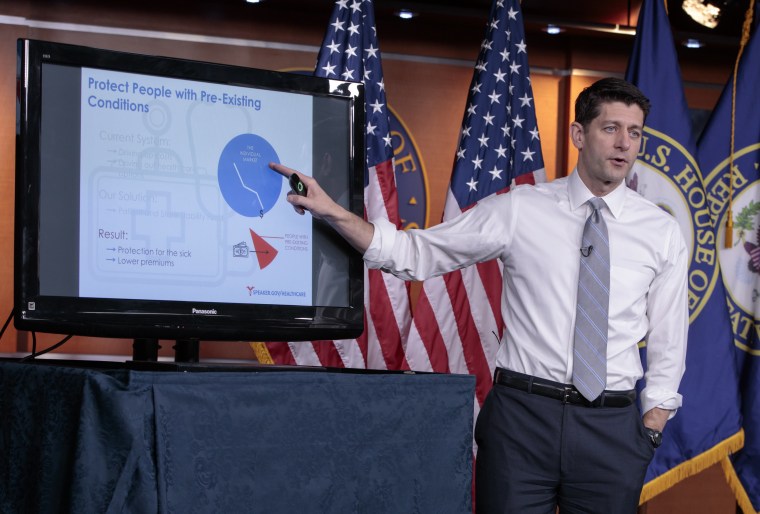After the Republicans' American Health Care Act died last month, unable to garner enough support from within the GOP, there have been frequent reports about efforts to breathe new life into the far-right plan. By and large, the scuttlebutt was easy to overlook.The latest developments, however, seem different and deserve to be taken seriously.There's new legislative language that amends the original Republican proposal, and the House Freedom Caucus is now on board with this new version -- after having opposed their party's bill in March. Conservative groups such as the Club for Growth and FreedomWorks, which also balked at the AHCA during the fight last month, have said the new changes are sufficiently right-wing to earn the organizations' support.All of which leads us to two broad areas of interest: how bad is this bill and can it pass.On the former, the core of the original legislation -- taking coverage from tens of millions of Americans, slashing Medicaid, cutting taxes for the wealthy, directing subsidies away from those who need them most -- remains intact. What's new is an amendment, negotiated in part by Rep. Tom MacArthur (R-N.J.), which moves the bill even further to the right. Vox's report noted that the changes "would likely cause even more Americans to lose coverage than the last version."
In particular, this amendment would allow some states to charge higher premiums to Americans with pre-existing conditions. States would also have the choice to opt out of the Affordable Care Act's essential health benefits requirement, as well as the possibility of charging older Americans significantly higher premiums. [...]But this amendment doesn't do much at all to assuage concerns about the older proposals. While it meets many of the demands of the party's far-right wing -- namely, the deregulation of the individual insurance market -- it does nothing to address concerns about massive coverage loss. Instead, it likely makes those problems worse.
Vox also reported on language in the amendment that would exempt members of Congress from changes Republicans intend to impose on the public at large. Rep. Mark Meadows (R-N.C.), chairman of the House Freedom Caucus, initially denied such language was in the bill, though by late this morning, he said he's confident the exemption will be removed from the bill.So, the new Republican plan is pretty much a disaster for everyone other than those who are healthy and wealthy. Will House Republicans actually pass this thing?For now, that's unclear. It's clear that some far-right lawmakers are now satisfied with the extremism of the proposal, but whether that will be enough to help get the bill across the finish line remains a subject of great debate.Because GOP leaders pulled the original bill before it could get a vote, we don't know precisely how many votes shy it was of passage, which means we don't know the exact number of votes Republicans will need to flip. The process of head counting will likely begin in earnest today, with an eye towards possible floor action next week.House members will likely be reminded of certain political circumstances that should give them pause: most Americans don't want the Affordable Care Act repealed; most Americans want to see Republicans move on to something else; most Americans opposed the original GOP plan (and this one will be even less popular); and most Americans want a health care system that does pretty much the opposite of what this far-right bill intends to do. Protections for those with pre-existing conditions enjoy especially broad public support, and this Republican plan would gut them.Complicating matters, as House members also know, this bill faces an even tougher challenge in the Senate -- which presents the very real possibility of Republicans in the lower chamber voting to take health security away from millions of Americans, only to have the bill die soon after.There are 238 Republicans in the House, and given the current number of vacancies, they'll need 216 votes to pass the GOP's new-and-not-improved plan. I'm skeptical they'll get there, but we should have a better sense quite soon.
